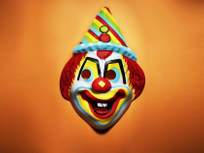Word of the Day
: February 27, 2014zeitgeber
playWhat It Means
: an environmental agent or event that provides the stimulus setting or resetting a biological clock of an organism
zeitgeber in Context
"Food availability seems to be a weaker zeitgeber than light. Although food is more essential than light for an animal's survival, light exerts a finer control than food availability over the activity rhythm." - From Roberto Refinetti's 2006 book Circadian Physiology, Second Edition
"Night-shift workers also struggle, he says, because they don't get the environmental and social cues that help adjust the circadian clock. The most important of these cues, called zeitgebers … is sunlight. But a zeitgeber could also be a scrambled-egg breakfast or children coming home from school in the afternoon." - From an article by Tara Parker-Pope in New York Times Magazine, November 20, 2011
Did You Know?
Zeitgebers are nature's alarm clocks-both biologically and etymologically. The word "zeitgeber" derives from a combination of two German terms, "Zeit," which means "time," and "Geber," which means "giver"-so a "zeitgeber" is literally a "time giver." In nature, zeitgebers tend to be cyclic or recurring patterns that help keep the body's circadian rhythms operating in an orderly way. For plants and animals, the daily pattern of light and darkness and the warmer and colder temperatures between day and night serve as zeitgebers, cues that keep organisms functioning on a regular schedule. For humans, societally imposed cycles, such as the schedule of the work or school day and regular mealtimes, can become zeitgebers as well.
Test Your Vocabulary
What is the meaning of "chronotherapy"? The answer is …
More Words of the Day
-
Apr 24
burgeon
-
Apr 23
exodus
-
Apr 22
palpable
-
Apr 21
noblesse oblige
-
Apr 20
gingerly
-
Apr 19
underwhelm











